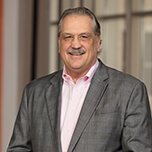After Tesla Crash, Will Driverless Technology Transition Slow?
Published: July 2, 2016 / Author: NPR Weekend Edition
TRANSCRIPT

Timothy Carone
SCOTT SIMON, HOST:
Transportation officials are investigating what seems to be the first fatal accident of a car that was under the control of an automated system, a Tesla Model S that was being driven by the car’s autopilot system and then collided with a tractor trailer. Tesla said the autopilot is simply an assist feature on their Model S and that drivers are advised to keep their hands on the wheel and stay in control at all times.
Now, currently only California, Nevada, Florida, Michigan and the District of Columbia allow driverless technology to be used in passenger vehicles. Will this crash and any questions that it raises slow the development of driverless cars?
Timothy Carone is a teaching professor in the department of IT analytics and operations in University of Notre Dame’s Mendoza College of Business. He also wrote “Future Automation: Changes To Lives And To Businesses,” which talks about the transition to autonomous systems, including driverless cars and unmanned airplanes. Professor Carone, thanks for being with us.
TIMOTHY CARONE: Thanks for having me.
SIMON: The beauty part of driverless cars is that they’re supposed to make driving safer, almost without accidents. Does this accident make you reassess that claim?
CARONE: No, it does not. This crash and the fatality is not a surprise to people involved in the industry or in the software development. You know, I think we have to expect that going forward there’ll be more incidents like this. And we just need to internalize it that while tragedies are not preventable per se, it’s a journey that ends with us having, you know, a number of traffic accidents reduced by, you know, an order of magnitude.
Read the transcript and listen to the interview on the NPR website.



